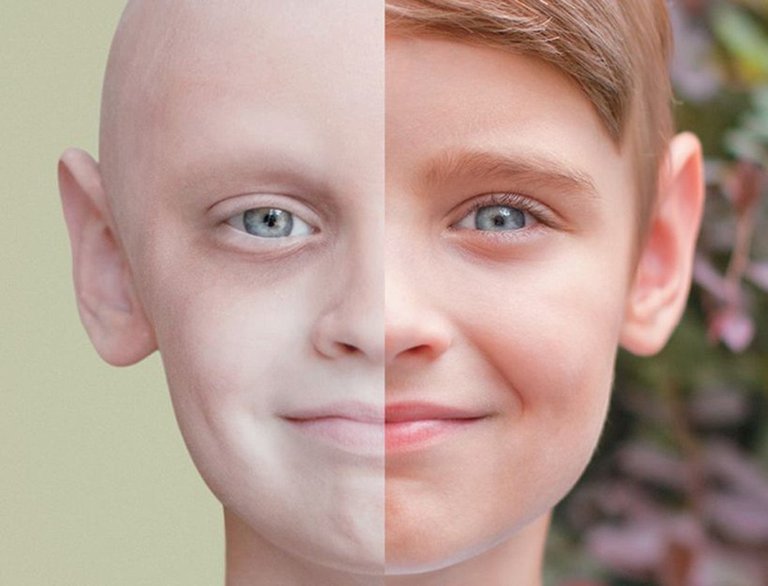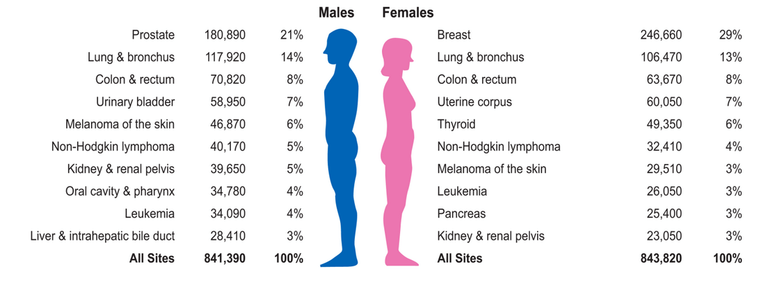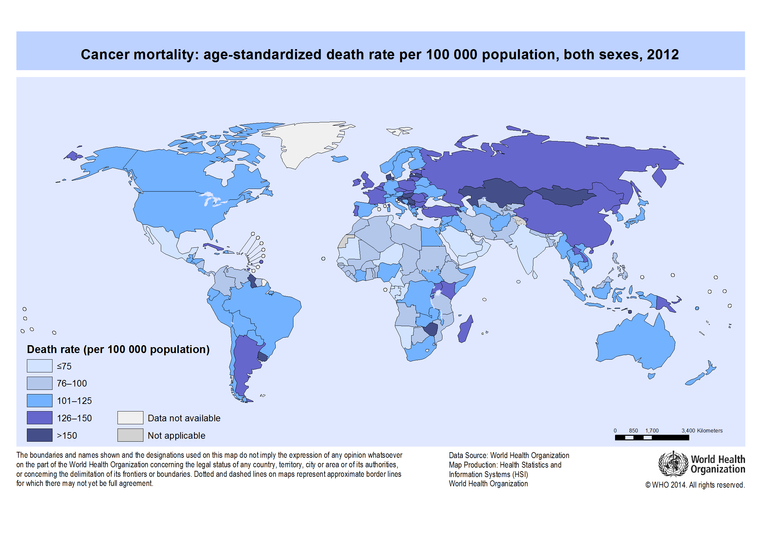
During the long struggle of human beings to survive, and in our constant struggle to control the planet in which we were created, we have - and continue to - waged wars and wars, one by one.
We fight against nature, its conditions, its disasters, and we fought other organisms that share our lives on Earth, from those predators that surpass us in size and strength; to germs and viruses that are invisible to the naked eye; and no less deadly than the greatest predators And the strongest. We fought each other and built our race and even ourselves!
Among all those fierce battles there is a war of a special kind. A war we have not yet been able to win. It is the old-modern battle between man and cancer.
Although the most serious diseases that threaten humanity are countless; some kill humans faster and uglier than cancer, but cancer patients have a special impact on any of us, even doctors and scientists.
It is synonymous with death - though not often - and it is a real manifestation of the hopeless disease - though often not - and perhaps in the imagination and imagination of many; it is the most telling example of man's inability to nature, Hands in front of the disease.
If this is the stereotype that we have about cancer, what is the opinion of science in it? What is the news of the war between human and cancer, and what is new about this issue?
Facts about cancer, its causes, methods of prevention, and treatment
Cancer cells are abnormal cells that grow and divide quickly and uncontrolled. Malignant tumors are benign; their size increases rapidly, invades and prunes in neighboring organs, travels through the lymph and blood to other parts of the body, and degenerates after removal.
* There are some reasons for cancer can be mentioned as follows:
Genetic or genetic causes. After many years of research and experimentation, scientists have identified many "Oncogenes" that may cause or predispose cancer.
The anomaly found here is divided into two parts:
- the presence of carcinogenic genes such as the BRCA1 and BRCA2 genes; or the absence of cancer-resistant genes such as the absence of P53, the most common type.
The other cause of cancer is found in many of the environmental factors that qualify for this disease, called "Carcinogen". For example, "Smoking, many chemicals, exposure to radiation, the nature of food, and the lifestyle of the human being as a whole."
If we compare cancer to any other disease, we are prompted to ask: What is the fundamental difference between cancer and other diseases, which has made it so frightening and so difficult to cure?
We can say that this is due to two main reasons:
First, the causes of cancer are not as clear as the causes of most diseases. Despite the great scientific development in this field, and even after the discovery of many qualified factors and the carcinogenic genes, there is still a good deal of uncertainty about the causes of cancer, how it started, and how it started.
Second, cancer - as we have said earlier - is characterized by a reversal and transition (both local and remote). This creates great difficulty in treating it, because once the malignancy has spread to different organs in the body, treatment becomes impossible.

Cancer is currently the second killer after cardiovascular disease, and researchers predict it will become the first killer in the coming period. According to the World Health Organization (WHO), cancer is currently responsible for about 15% of human deaths. The American Cancer Society estimates that more than 14 million new cancer cases, and more than 8 million deaths, Deaths occur annually in the world.
Statistics in industrialized countries indicate that the most common malignant tumors, which affect humans, are as follows:
In men: Prostate - Lung - Colon.
When Women: Breast - Lung - Colon.
Lung cancer is the most common type of cancer that causes death in both sexes.
(These statistics do not include skin cancer, which alone forms "40%" of cancer).
In children, the
list is topped by cancers such as lymphoma and brain tumors, where more than 160,000 new cancers are diagnosed annually in children under the age of 15.
Lymphoma; lymphoma cancer.
This information and previous figures are general and include all ages and different countries of the world, and are especially focused on the United States of America, and the rest of the industrialized countries.
For example, the most common cancer in Japan is stomach cancer, and in Africa, liver cancer. In Egypt, bladder cancer is one of the most common and widespread types of cancer.
Also, for example, melanoma - a type of skin cancer - does not affect blacks and blacks at all, but affects the blond and Caucasian veins in particular. This is because ultraviolet radiation is responsible for producing this type of malignancy, and it affects the white skin much more than its effect on the black skin.

my contribution to you, regarding the science in which this disease is generated by somatizations, that is, we do not experience the emotional phenomena correctly and that chemical discharge of our neurotransmitters stays inside our body, where the same energy goes that we only suppress it and speak of the pleasant pole, the anger and the sadness. Nobody has been taught a set that feels, as it lives and as expressed, a deficit in one of these stages. Our body tends to get sick and develop cancer. It is an explanation by psychology, as it is somatized.
I invite you to see my post, I have one on neurosciences that might interest you.